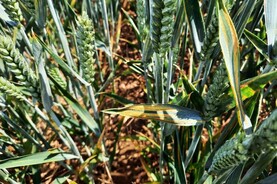Speaking to Séamus Kearney of the Department of Agriculture, he noted that he examined varieties from 2024 trials for skinning as there were issues with rejection for skinning in the Kilkenny area in particular and the variety SY Amity seemed to be most affected.
Séamus explained that he examined all varieties in trials in Kilkenny and Fermoy. The Department deemed any varieties with more than 10% of the husk gone off the grain as a skinned grain.
In the Kilkenny trial the average level of skinning was 27% and in Fermoy the average level was 17%.
Skinning is often not a problem. Variety plays a part, but weather is probably the biggest factor and wet and dry weather when the husk is forming does not help.
Séamus noted that the weather from late June on, affects it most and explained that it’s caused by the weakening of the enzymes that essentially stick the husk to the grain.
The last time skinning was examined was 2016. The variety with the lowest skinning by far at that time was Gangway. It was still the best variety with the lowest level of skinning last year.
He added that the more concerning aspect of the process was the fact that of the top five worst varieties three of them are malting varieties. Florence had the highest level of skinning, followed by Munroe, Gretchen, SY Amity and LG Mermaid.
Why is skinning an issue?
Skinning causes issues in malting plants. High spirit and alcohol yields can still be achieved, but skint grains make the plant less efficient and increases costs as the grain requires a lot more sieving, filters getting blocked have to be cleaned and more filtration is needed to finish with a clean product.
If a farmer’s grain is rejected for malting it also comes at a cost to the farmer, so it is worrying that of all the varieties tested the ones most impacted by skinning are malting varieties.






 This is a subscriber-only article
This is a subscriber-only article










SHARING OPTIONS: